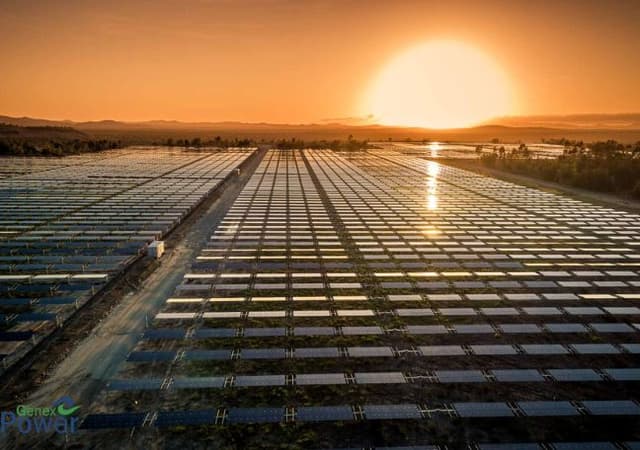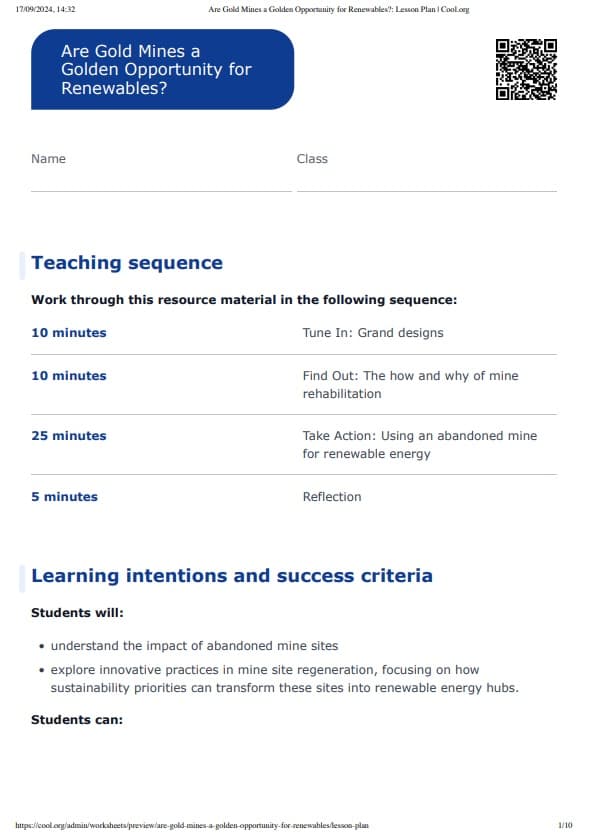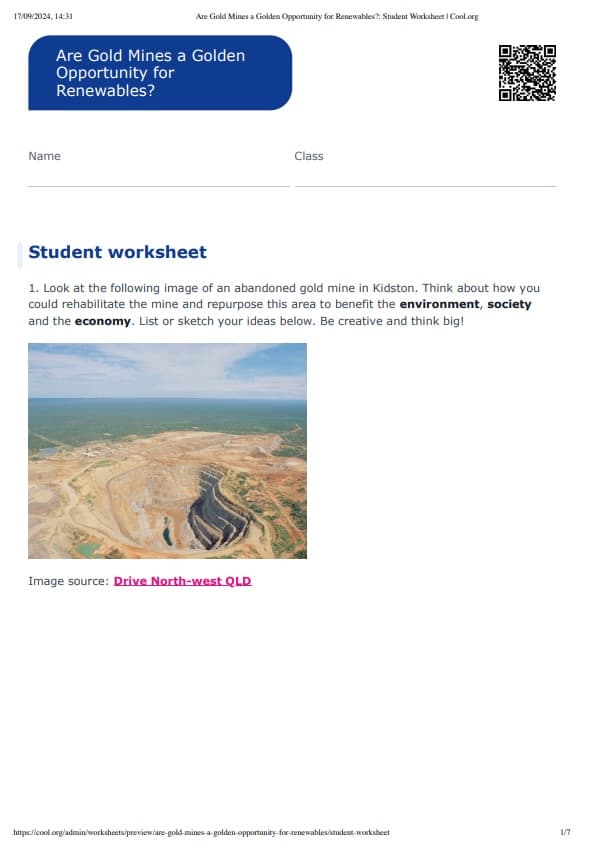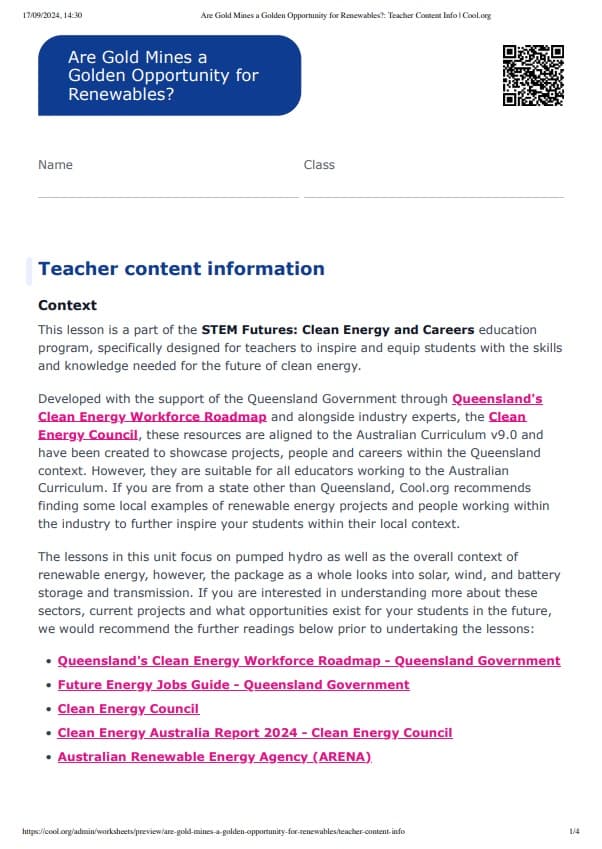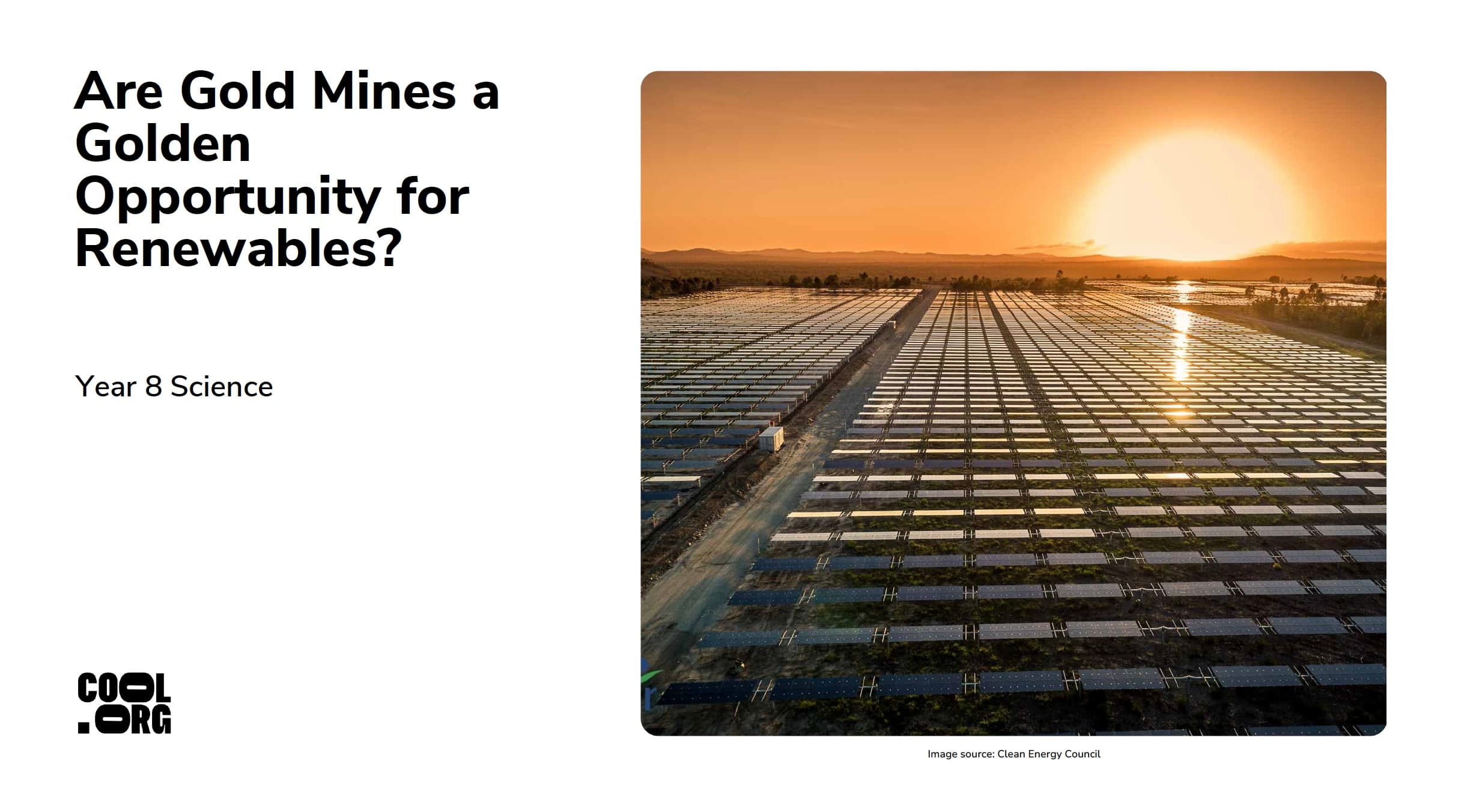Learning intentions:
Students will...
- understand the impact of abandoned mine sites
- explore innovative practices in mine site regeneration, focusing on how sustainability priorities can transform these sites into renewable energy hubs.
Success criteria:
Students can...
- assess the environmental, social and economic impacts of abandoned mine sites
- outline methods used to rehabilitate mine sites, and the benefits these methods provide to the environment and communities
- evaluate how the Kidston Pumped Hydro renewable project demonstrates sustainable and efficient practices by transforming an old mine site into a renewable energy source.
